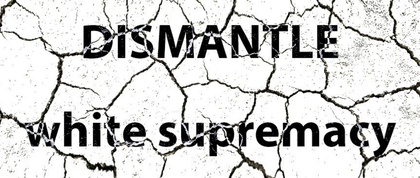
A panel of experts discussed white supremacy in the U.S. from multiple viewpoints. Presented by NYU’s Brennan Center for Justice, the John Brademas Center, and GPH.
This wide-ranging discussion explored the ideologies of white supremacy, the groups that champion these beliefs, and the forums that enable these individuals to connect and grow their movements. Please visit the event webpage to listen to the full conversation.
Listed below are a few key takeaways [with timestamps] from each of the panelists:
Michael German is a fellow with the Brennan Center’s Liberty & National Security Program.
- “[White supremacy] is not something that’s on the margin of our society; it’s actually the foundation of our society. The United States of America was founded as a white supremacist project.” [8:52]
- “The problem isn’t a lack of law, it's a lack of will and a lack of interest and a lack of understanding that this is a threat to more Americans than other kinds of violence.” [40:15]
Naureen Chowdhury Fink is executive director of The Soufan Center, a non-profit devoted to global security issues.
- [There are] “… transnational connections between white supremacy extremism and ... the fight in Ukraine … People go to get training and combat experience and bring that back to the U.S. We’ve seen almost 17,000 people go to the conflict in Ukraine and come back with these experiences.” [17:13]
- “There are financial ties with groups abroad and also operational training. We’ve even seen them learn from jihadist groups. With the rise of social media all of these boundaries have been collapsed in many ways, and we see far right groups access jihadist training material and how-to guides.” [17:53]
David E. Kirkland is executive director of The NYU Metropolitan Center for Research on Equity and The Transformation of Schools.
- “White supremacy is the social construct of values that privileges white bodies, usually at the expense of other bodies ... [The concept is not singular] but has constructed other systems of power to interact with it to secure white social, political, economic and military dominance.” It’s based on the idea that equity for minorities equates to a loss for whites. [4:55]
- “The question is what does anti-racist schooling like, and much of it is giving people the opportunity to tell their own stories while the rest of us listen ... Equity in education means reconciling that the project of schooling has been a white supremacist project. The curriculum you get guarantees that you learn about white people and, in some ways, white supremacy.” [58:37]
Vida Johnson is an associate professor of law at Georgetown University.
- “We know that scandals in police departments in places like San Francisco and Miami make plain that explicitly racist speech is routine in police departments even in diverse places; this isn’t just a problem of the South or rural areas.” [25:02]
- “The blue wall of silence protects officers and keeps many officers on the force because others fail to report them for their explicitly racist views, which allows those views to become further entrenched in those departments because they become normalized.” [26:08]
The panelists urged attendees to stay vigilant to the ways that white supremacy infiltrates the institutions we interact with everyday.
Author
Destine Manson
GPH Communications Editorial Assistant